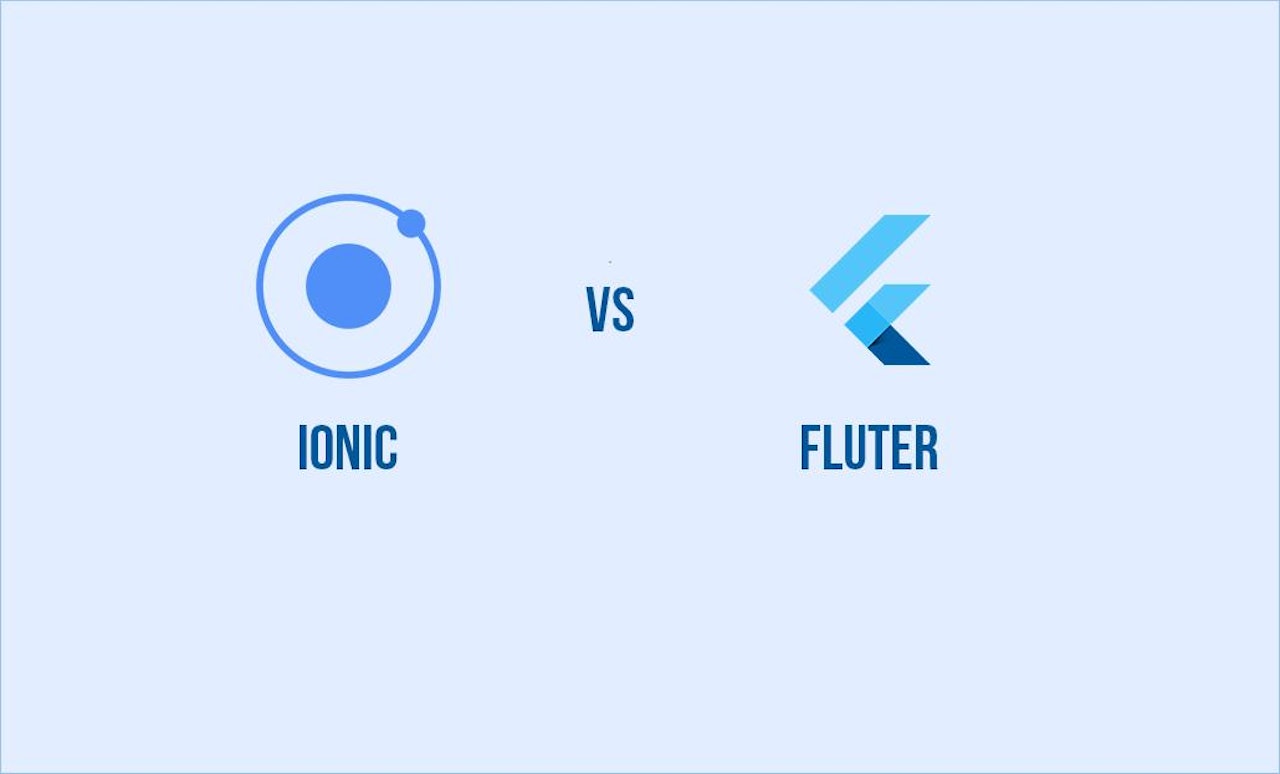The applications built today have to perform across so many devices, different platforms, and so many operating systems. But the best part of technology is that it seems to have solutions for almost everything, and the solution to this problem lies in the mantra ‘Code Once, Run Everywhere’.
Building a mobile app used to be a brow-raising affair for both stakeholders and developers because platforms became a major constraint. This was mostly due to the lack of tools or technologies available for the development of hybrid mobile applications. In short, app development became a constant tug of war between iOS and Android. But that was almost a decade ago.
Today, the situation is just the opposite. The developers today have plenty of options to work with. The availability of Software Development Kits (SDKs) meant specifically for hybrid app development has made things easier and better for everyone.
Two such platforms that have stolen the limelight are Ionic and Flutter. Both these development kits come with pretty impressive (and highly functional tools) that not only help developers save their time and effort, but also enable stakeholders to get more out of less.
But once again, deciding on a single platform demands an evaluation of both these platforms, and that is exactly what we will be doing here. So let’s begin without further ado.
A Peep into Ionic
Released in 2013, this open-source hybrid app development SDK was built on top of Cordova (earlier PhoneGap) and Angular. However, its latest release was in the form of web components that allowed developers to incorporate it into mobile app development frameworks like React and Vue.
The SDK consists of a unified and extensive collection of cross-platform tools that are divided into three categories:
-
Ionic Framework - A UI toolkit that developers can use to create astounding interfaces across major mobile operating systems with a single shared codebase.
-
Ionic CLI – Allows developers to create, test and deploy hybrid mobile apps easily. Developers can even use the CLI of their favorite JavaScript frameworks and carry out integrations and deployments.
Our Amazing SponsorsDigitalOcean offers a simple and reliable cloud hosting solution that enables developers to get their website or application up and running quickly.View Website
Laravel News keeps you up to date with everything Laravel. Everything from framework news to new community packages, Laravel tutorials, and more.View Website
A Laravel Starter Kit that includes Authentication, User Dashboard, Edit Profile, and a set of UI Components. Learn more about the DevDojo sponsorship program and see your logo here to get your brand in front of thousands of developers.View Website
-
Ionic Capacitor – A set of open-source technologies including Kotlin and Swift that can be used for the development of native, cross-platform web applications targeting Android, iOS, and the web as their deployment destinations.
Besides the above-mentioned tools, Ionic also provides developers with native APIs along with an extensive set of both Capacitor and Cordova plug-ins to let developers make their apps more extensible.
A Peep into Flutter
Flutter is Google’s technology and that is what makes it more empowering. Written in C, C++ and Dart, this open-source development platform (though new in the app development industry) has gained recognition for its multi-platform support, which also include Windows, macOS, and Google Fuchsia, and powerful tools.
Flutter houses several noteworthy features, but some of them that need mention are given below.
- Automated testing, and development toolings like design-specific custom widgets and IDE support for creating top-notch hybrid mobile apps
- CPU profiling, network profiling, and source-level debugging of a Flutter or Dart app
- Facility for viewing diagnostics and general log information while running a Flutter app
- Inspection, diagnosis, and analysis of UI layout, performance issues, application size, and codes
- Availability of The Foundation Library that offers basic functions for the construction of apps including APIs
The Contrasts of Ionic and Flutter
By this point, we know that the only similarities between Ionic and Flutter are that both are open-source SDKs and both are used for the creation of mobile hybrid app development. So now we look at the differences.
1 Building Technologies
The first difference lies in the building technologies. While Ionic is a mixed product of JavaScript and TypeScript and has its base with Angular and Cordova, Flutter has been written in Dart, C and C++.
2 Cross-platform Support
The cross-platform support of Flutter has more extensions than Ionic. Both platforms have the facility for the development of native web apps that target all major platforms. But Flutter apps also offer support for Windows, Linux, and Google Fuchsia.
3 Performance
Performance-wise, both Ionic and Flutter give tough competition to each other. Flutter applications perform well on native platforms because they do not require a communication bridge between their native modules as the components are already available by default.
Ionic apps on the other hand offer excellence in hardware-accelerated changes and functions like touch-optimized gestures, which is why in spite of being a non-native platform, the apps built with it offer superior performance.
4 Architectural Framework
For developers, an architectural framework plays a vital role in the selection of the development platform because the right framework helps in easing up the entire development process. Flutter has a layered architecture that begins with widgets specific to platforms. Developers prefer this architecture as it becomes easy to develop complicated apps with it.
Ionic on the other hand is based on the MVC architecture of Angular. This comes in handy for the development of performant and chic mobile and web apps including single-page applications. This architecture is also helpful in the creation of multiple views.
5 User Interface Elements
The UI elements of Flutter consist of an extensive collection of highly interactive, structural, and visual widgets, which also include Cupertino. The Cupertino widgets are high-fidelity, iOS-styled and beautiful widgets meant specifically for the current design language of iOS.
Meanwhile, the Ionic UI elements consist of building blocks known as web components. These components help in the creation of a flawless UI. Ionic’s components include lists, cards, toggles, buttons, chips, grids, modals, and many more.
So, Ionic or Flutter?
Now picking one particular platform is always tough, and the pick here is hard because both Ionic and Flutter are competent in their own ways. The right pick, however, has to be in sync with the requirements that the app is supposed to cater to. For instance, if the objective of the app is platform-based, then Flutter development services make it for priority.
But if you’re looking for a simplified yet effective development for limited platforms, then Ionic makes for a better choice. However, the last decision depends upon the experts as they are the ones who are well-versed with the technologies and know their suitability to the requirements.


Comments (0)